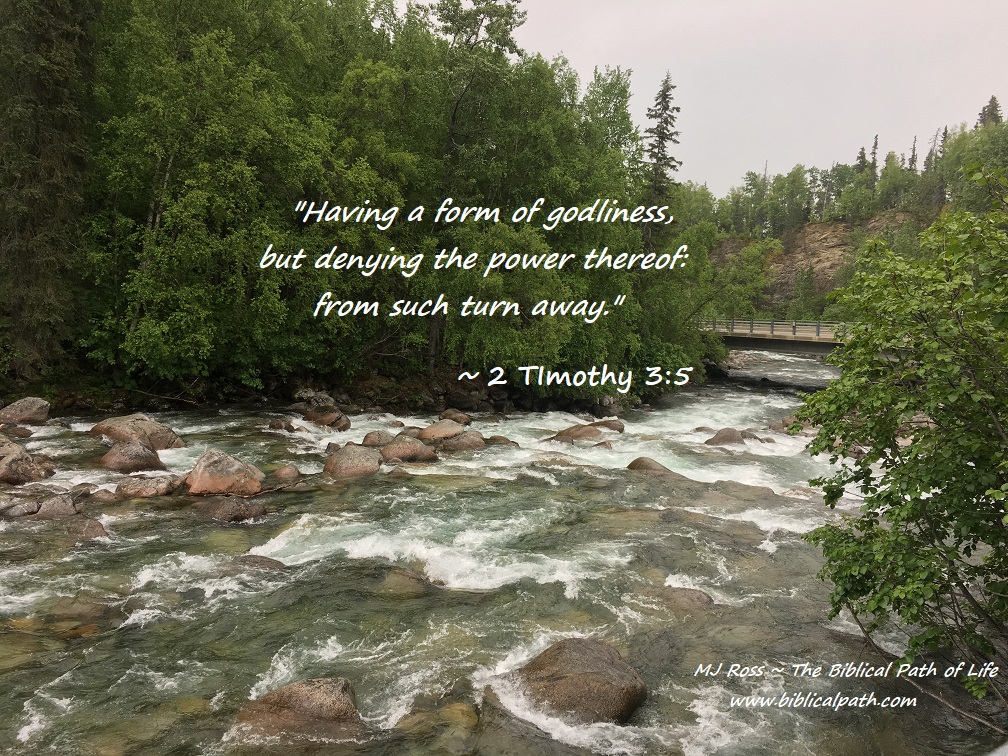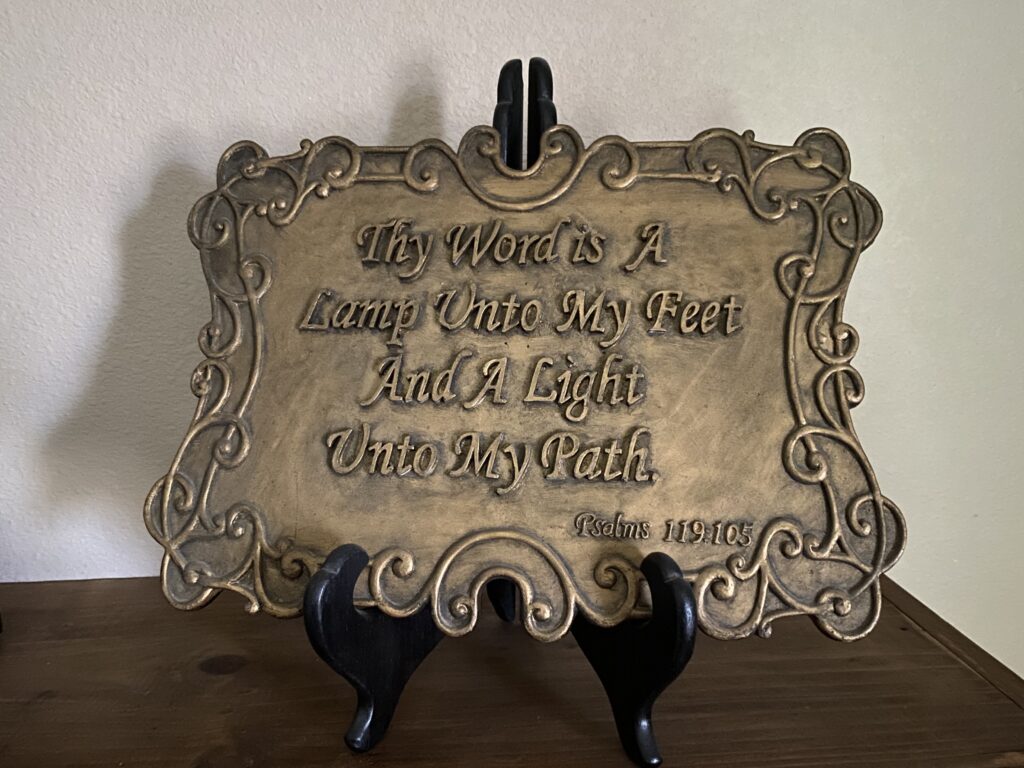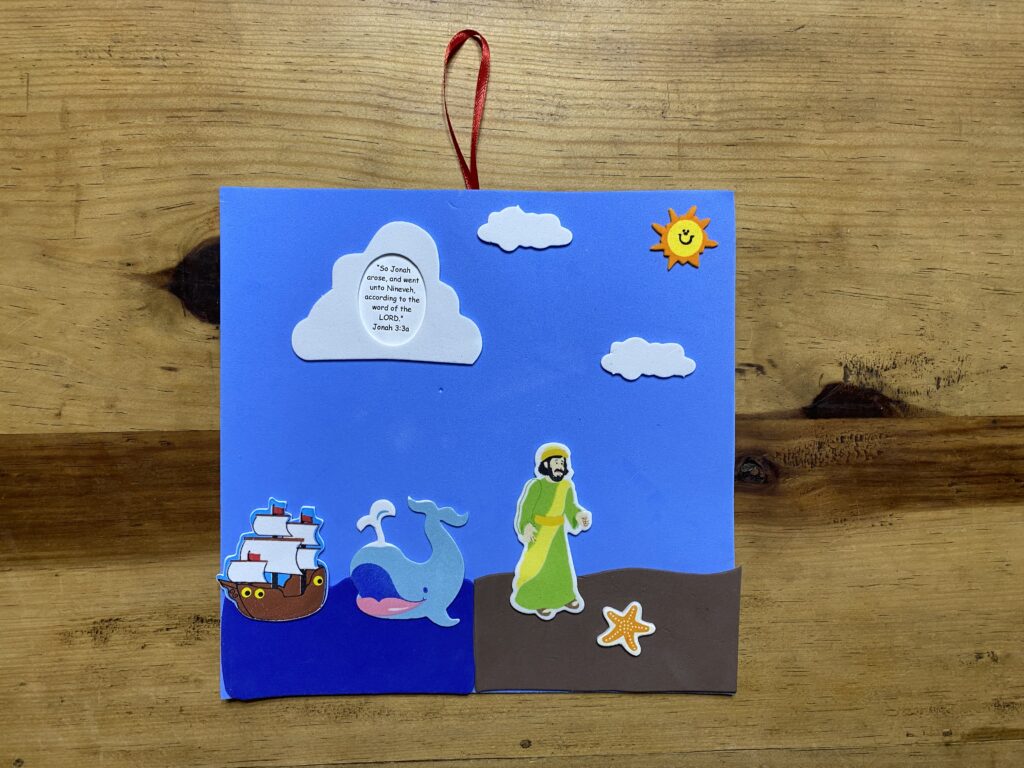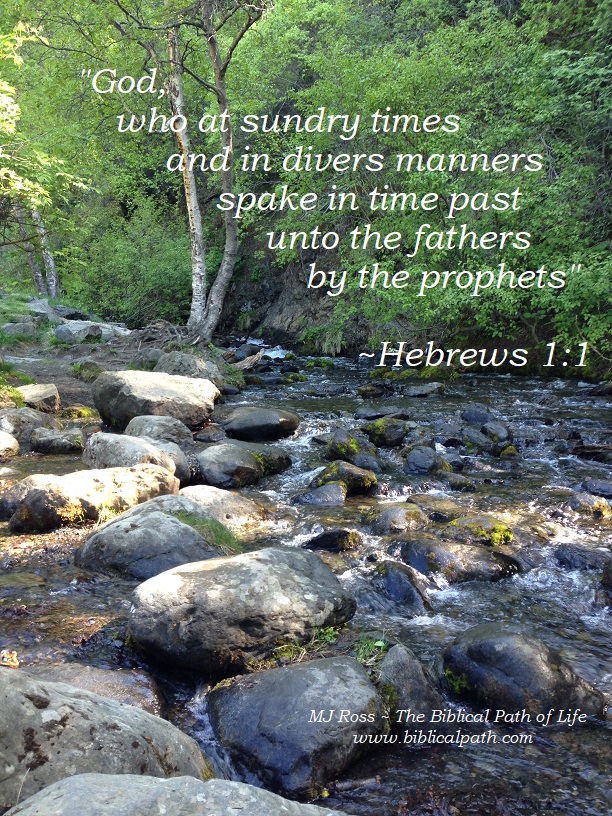
“Having a form of godliness, but denying the power thereof: from such turn away.”
2 Timothy 3:5
In the Old Testament divided kingdom years, Israel had the form of worship (a religion) without the power (true nature) of that worship of God. King Jeroboam established two places of worship at Dan and Bethel, with golden calves in each city. They still performed sacrifices, but they were to idols — not to God. They “practiced” their religion as they always had, but they were denying the “power” of God because they replaced Him with the idols. Because of this, they never had a good king. We learned that each king “took no heed to walk in the law of the LORD God of Israel with all his heart: for he departed not from the sins of Jeroboam, which made Israel to sin” (2 Kings 10:31). Those sacrifices were supposed to remind them of their sin, and that God would send One to remove that sin. Without the correct worship, they would never seek for their Messiah (which was Jesus).
This helps us recognize that Israel had ceased to worship God. They had been practicing a religion. God could not be recognized in that empty religion. When God could not be seen in the lives of Israel by others, God sent Jonah to be a testimony to the people of Nineveh. God was vividly seen in the life of Jonah as he was in the belly of the whale for three days and three nights. When the people of Nineveh saw Jonah and heard his testimony, they believed in God and repented (Jonah 3:5).
When Jesus came, He reminded the people of Jonah (see Luke 11:29-32). Jesus was greater than Jonah who survived three days and three nights in the belly of the whale. The nation of Israel rejected Jesus. Jesus was crucified, but on the third day, He rose from the dead. Jesus revealed the only way to God was through Him. “Jesus saith unto him, I am the way, the truth, and the life: no man cometh unto the Father, but by me” (John 14:6). Only those who believe Jesus is the Christ, that once and for all sacrifice for sins, will be saved. “4. For Christ is the end of the law for righteousness to every one that believeth … 9. That if thou shalt confess with thy mouth the Lord Jesus, and shalt believe in thine heart that God hath raised him from the dead, thou shalt be saved. 10. For with the heart man believeth unto righteousness; and with the mouth confession is made unto salvation… 13. For whosoever shall call upon the name of the Lord shall be saved” (Romans 10:4, 9–10, 13).
Read the following warning: “Having a form of godliness, but denying the power thereof: from such turn away” (2 Timothy 3:5). Form means “the process or activity of forming or shaping; specifically in reference to the Law as the source of knowledge and truth. This refers to the godliness, which is only a form and an external appearance. Such godliness is a sham and devoid of any real power to break the power of sin.” Power means “true nature of something as opposed to just talking about something.” From this verse, we can understand that just because someone acts like they are “godly” (i.e. practicing a religion) does not actually make them godly (a Christian) if they do not have Jesus in their heart. For someone to act “godly” and not have Jesus, is someone who has denied the power (true nature of something) of Jesus in one’s life. It may look and sound real, but it is not. This verse teaches that we are to “turn away” from someone, or even things, like that.
A very important thing we should understand is summed up in 1 Corinthians 2:5: “That your faith should not stand in the wisdom of men, but in the power of God.” It really does not matter what one thinks, it matters what God has said in His Word. Once we understand this, we have a hope the world does not have. Although it was hidden somewhat from those who lived in Old Testament times in that they did not know who it would be, we know that Jesus was that One promised from the beginning of time. Just as they could not understand in the Old Testament, we today can understand because it has been written in the Bible for us to read. Why doesn’t everyone in the world understand? “3. But if our gospel be hid, it is hid to them that are lost: 4. In whom the god of this world hath blinded the minds of them which believe not, lest the light of the glorious gospel of Christ, who is the image of God, should shine unto them” (2 Corinthians 4:3-4). Satan does not want anyone to know the simplicity of the truth. That is why it is important for us to first live a life that reveals Jesus, and then tell the world what Jesus has done — so that they, too, may be saved. Israel failed to reveal God to the world. Christians today must live a Christ-like life so others can trust in Jesus.
Have you trusted in Jesus, having the power and not just a religion (a form of godliness without the power)?
Do you live a Christ-like life so that others can see Jesus in you?





